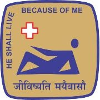Department Chair and Full Professor: Biomedical Engineering and Informatics
The Indiana University Luddy School of Informatics, Computing and Engineering at IU Indianapolis invites applications for a tenured full professor position to serve as chair of the Department of Biomedical Engineering and Informatics (BMEI). Ideally, the appointment will begin January 1, 2025 on the IU Indianapolis campus, however we are open to the possibility that a candidate may not be able to start until summer or fall of 2025. Exceptional faculty candidates are being sought to join our expanding and fast-growing department. We welcome applications from established researchers with collaborative research teams. Candidates will be considered from all areas at the intersection of informatics, computing, engineering and medicine, including but not limited to bioinformatics, health and clinical informatics, biomedical engineering, bioelectronics and bioengineering. Candidates must be tenured and demonstrate an excellent scholarly record of externally-funded research, effective and well-reviewed teaching, a forward-looking agenda of research and education, and last but not the least a record of leadership experience in an academic setting.
The new chair will have the opportunity to shape and expand a dynamic department on the premier urban research campus of Indiana University. By strengthening or complementing the faculty research in the department, the ideal candidates will use creative, innovative approaches and technologies to address fundamental scientific challenges in one or more areas of biomedical informatics and engineering with broader societal impact, and have the potential to leverage the strengths of Luddy, including: the Polis Center, the Luddy AI Center, leadership on the campus-level Integrated Nanosystems Development Institute (INDI), the unique location in downtown Indianapolis, and interdisciplinary, collegial and collaborative environment, as well as direct access to the research enterprise of IU School of Medicine, the largest medical school in the country, located on the Indianapolis campus. The incoming chair is also expected to further the research impact of the department by leveraging two newly established campus-wide research institutes at IU Indianapolis: The Institute for Human Health and Wellbeing (H2W) and The Convergent Bioscience and Technology Institute (CBATI). These Indianapolis-based institutes will drive transformative research in the areas of health, medicine, life sciences and biotechnology, while equipping IU to nimbly address emerging disciplines. The BMEI department will play a central role in advancing the academic and research mission of these institutes.
Fostering an inclusive environment makes us stronger. The Luddy School in Indianapolis draws on the strengths of an intellectually and culturally diverse community of students, faculty and staff to enrich the educational experience, broaden participation in computing, and meet the needs of emerging technology. We are committed to actively recruiting and retaining students, faculty and staff from all backgrounds and cultures to join the next generation of innovators. We welcome what every individual brings to our learning environment—socially, geographically, and in thought and experience.
About the Department of Biomedical Engineering and Informatics
The Department of Biomedical Engineering and Informatics is home to a dynamic and interdisciplinary group of 18 full-time faculty members, 20+ part-time instructors and nearly 400 students across its Health Informatics, Bioinformatics, Biomedical Informatics (BMI), and Health Information Management (HIM) programs. The department offers a B.S. in HIM, a B.S. in BMI, an M.S. in Health Informatics, an M.S. in Bioinformatics, two Graduate Certificates, a Ph.D. in Informatics – Health and Biomedical Informatics Track, and a Ph.D. in Informatics – Bioinformatics Track. The faculty in the department conduct groundbreaking research, funded by federal agencies and local life science industry (e.g., NIH, NSF, PCORI, VA, AHRQ and Eli Lilly and Company) in the areas of bioinformatics, clinical and health informatics, genomics, bioinformatics, computational biology. biomedical engineering, biomedical systems design and mobile technology. Indiana is home to large healthcare exchanges, including the Indiana Health Information Exchange (IHIE) and Michiana Health Info Network [MHIN], as well as multiple healthcare systems within Indiana. BMEI enjoys close collaborations with IU School of Medicine and the Regenstrief Institute, a pioneering institution in healthcare information technologies. Other partnerships include the IU Center for Computational Biology and Bioinformatics (CCBB), the Luddy AI Center (LAIC), the IU Center for Bioethics, the VA Center for Health Information and Communication (CHIC), IU Health (one of the largest health care organizations in the Midwest), the Schools of Nursing, Dentistry and the Fairbanks School of Public Health.
About the Luddy School of Informatics, Computing and Engineering – IU Indianapolis |
The IU Luddy School of Informatics, Computing and Engineering is the first completely new school in the United States devoted exclusively to Informatics and a range of its subdisciplines. With its formative national role in creating the nation’s largest Informatics Program on the Bloomington and Indianapolis campuses, the school is the broadest and one of the largest information/computing schools in the U.S. At IU Indianapolis, the school also has strong ties with the health and life sciences in the areas of health data exchange, clinical decision support, consumer health informatics, integrated health information systems, and interactive health information technologies. The school provides state-of-the-art facilities including fully equipped classrooms, media and gaming labs, human–computer interaction research labs, usability and mobile development labs, ample research facilities, and studios for sound design and interactive media production. Access to advanced, high-resolution wall-sized displays and virtual environments are also available within the Informatics and Communications Technology Complex. The Luddy School at IU Indianapolis is also home to the nationally recognized Polis Center. The Polis Center works with community partners to develop innovative place-based policies and practices for healthier and more resilient communities by leveraging data in Geoinformatics, Community Informatics and Community Health Informatics.
For additional information about the Indiana University Luddy School of Informatics, Computing, and Engineering, including degrees, course descriptions, plans of study and faculty research, please see luddy.indianapolis.iu.edu.
About Indiana University Indianapolis https://indianapolis.iu.edu/
The IU Indianapolis campus, with over 24,000 students, is located adjacent to downtown Indianapolis. IU Indianapolis is the health and life science campus of Indiana University, the focal point of health profession education in the State of Indiana. IU Indianapolis offers a full range of academic programs, and is an academic leader in the development and use of information technology. The Luddy School in Indianapolis is on the academic Medical Center Campus, home to the Indiana University School of Medicine, the largest medical school in the US. The school has formed key research partnerships with the IU School of Medicine and the Regenstrief Institute, an internationally recognized medical informatics research center. The school also enjoys collaborations with the Roudebush VA Medical Center, IU Health (one of the largest health care organizations in the Midwest), the IU Schools of Nursing, Public Health, Health and Human Sciences, and School of Science. Luddy School faculty have access to state-of-the art computing resources. IU’s Quartz supercomputer, Big Red 200 is among the world’s fastest research supercomputers. Owned and operated solely by IU, these high-performance resources are designed to accelerate discovery in a wide variety of fields, including biomedicine, biotechnology, health care, and enable effective analysis of large, complex biomedical data sets (i.e., big data).
About Indianapolis
Indianapolis is the nation’s 15th largest city, the capital of Indiana, home to the Indianapolis Motor Speedway, the NCAA, the Indianapolis Colts and Indiana Pacers, Indiana Repertory Theatre, Indianapolis Symphony, Indianapolis Ballet, Indianapolis Museum of Art, Indianapolis Zoo and one of the country’s most livable big cities. To learn more about Indianapolis, see any of the following websites:
· Indy Parks, over 150 parks in and around the city — www.indyparks.org
- Local Government & Neighborhoods — www.indy.gov
- Downtown — https://www.downtownindy.org/
- Tourism — www.visitindy.com
- City Guide — https://www.indianapolismonthly.com/best-of-indy/2020-city-guide
- Carmel, Indiana, rated the #1 Best Place to Live in the U.S. — www.carmel.in.gov















